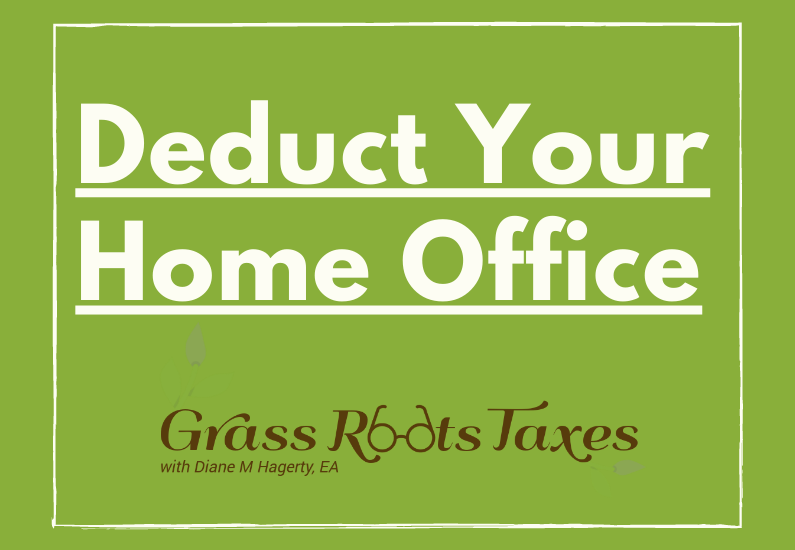Table of Content
A home office tax deduction is a deduction that eligible workers can take if they have a dedicated in-home office space, which is strictly used for business. You must use a portion of your home exclusively for conducting your business regularly. While the IRS does not require you to keep a specific method to prove your home office, you should keep documents to verify your home office deduction. This may include canceled checks, receipts and other records to prove your home office and any expenses paid, such as mortgage interest, cable, utilities and other qualified expenses. But the IRS imposes a lot of rules regarding what’s tax deductible and what’s not, and you may only be able to claim a percentage of your costs in many cases. It depends on whether an expense serves only your home office area or if a portion of it also serves the personal living areas of your home.
Premiums are typically paid annually, so a portion of them might cover other years. Now multiply the percentage of your home that’s used for business purposes by the amount of the expense. The home office deduction Form 8829 is available to both homeowners and renters.
Which method should I use to calculate my home office deduction?
People with physical or mental disabilities that limit their ability to be employed can deduct expenses necessary for them to work from home, including attendant care. U.S. military reservists of Army, Navy, Marines, Air Force, Coast Guard, National Guard or Public Health Service may also be able to deduct some qualifying expenses. For example, let’s say you have a 12×12 room with about 144 square feet where you’ve installed a home office. If the area of your home is 1,000 square feet, your office makes up 14.4% of your home.
All features, services, support, prices, offers, terms and conditions are subject to change without notice. If the office measures 150 square feet, for example, then the deduction would be $750 (150 x $5). Special rules apply if you qualify for home office deductions under the day care exception to the exclusive-use test. If your home office is in a separate, unattached structure — a detached garage converted into an office, for example — you don't have to meet the principal-place-of-business or the deal-with-clients test. As long as you pass the exclusive- and regular-use tests, you can qualify for home business write-offs. An unprecedented number of workers and businesses have transitioned to a work-from-home model.
Private Use of Company Car: Tax Rules in the UK
Be careful not to deduct this one twice if you itemize your deductions on your personal tax return. If you deduct a portion of your property taxes as part of your home office deduction, you must reduce the real estate taxes listed on your Schedule A by that amount. If an employee submits itemized home office receipts to an employer, the employer can reimburse the employee for the expenses that are reasonable and employment related. Where an expense has both personal and business components, the employer would be required to report as income to the employee those amounts which pertain to personal use. For such mixed payments, a reasonable allocation between personal and business should be used to determine the taxable portion.

Keep track of all your business expenses and receipts to ensure you can prove your purchases in case of an audit. Your home office doesn’t have to be a separate room but the IRS requires that it’s a distinct area that’s used as your home office only. For example, if you are an accountant and use your den to prepare clients’ financial statements and your kids also use the room as recreation, you cannot claim the home office deduction.
If you aren't eligible
Occasionally using that part of the basement to store personal items wouldn't cancel your home office deduction. To qualify for this exception, your home must be the principal location of your business. The third option, being reimbursed under an accountable plan, provides the greatest tax savings. It is an excellent way to get money out of your closely-held corporation tax-free.

If the home office is within the same "dwelling unit" as the residential portion of your home, you are treated as using the entire home as a principal residence. Professional webinars CPE/CE Sharpen your skills with live sessions or recordings on topics like tax law, advisory, and workflow optimization. Professional webinars Sharpen your skills with live sessions or recordings on topics like tax law, advisory, and workflow optimization. EasyACCT Gain a proven solution for write-up, A/P, A/R, payroll, bank reconciliation, asset depreciation, and financial reporting.
For example, if you are a rideshare driver but do not have a work office and use your home office for ordering supplies, creating reports and other administrative tasks, you would qualify for the home office deduction. At the start of the pandemic, the number of people working from home increased significantly—but not all of them will qualify for the home office deduction. Taking a deduction for depreciation can have tax consequences when you sell your home later, so be sure to carefully consider whether a home office deduction for this expense is right for you. Multiply your rent payments by the percentage of business use of your home.

Calculation showing how this amount was arrived at and the apportionment. If you feel that our information does not fully cover your circumstances, or you are unsure how it applies to you, contact us or seek professional advice. The area of your home that you use for work is exclusively or almost exclusively used for work purposes and isn't readily capable of being used for any other purpose. You can use the myDeductions tool in the ATO app to help keep track of your expenses.
The burden of proof for taking this deduction is on the taxpayer, so if you're audited, you will have to back up your claim to the IRS. For example, if you left a 9-to-5 job, started your own business in 2021 and use your home as your primary office space, you may be able to claim the deduction for part of the year, according to Wilson. If your home office expenses are more than your business income for the year, your deduction will be limited, as you cannot make your Schedule C income go below zero using business use of home expenses.
TurboTax makes it easy to determine if you qualify and how much you can write off by asking you simple questions about your unique tax situation. TurboTax has you covered whether your tax situation is simple or complex. We’ll help you find every deduction you qualify for and get you every dollar you deserve.
Good Company Entrepreneurs and industry leaders share their best advice on how to take your company to the next level. First, you must be sure that your home office is indeed a home office by IRS standards. Taylor Tompkins has worked for more than a decade as a journalist covering business, finance, and the economy. She has logged thousands of hours interviewing experts, analyzing data, and writing articles to help readers understand economic forces. When a part of your home is used as a home office, that part is considered to “taint” the primary residence exclusion for CGT purposes.
Expenses that relate to a separate structure not attached to the home will qualify for a home office deduction. It will qualify only if the structure is used exclusively and regularly for business. Taxpayers must meet specific requirements to claim home expenses as a deduction. Even then, the deductible amount of these types of expenses may be limited. Assuming that Ruby lives in Ontario, and without regard to an employee deduction , the after-tax value of the allowance (i.e. what Ruby actually puts in her pocket) is approximately $679.
What are the 3 general rules for qualifying your home office as a business expense?
Generally, you should select the deduction that provides the highest deduction for your business. If you use an online tax software provider, calculate your deduction both ways to determine which method works best. Otherwise, you may want to speak with a tax professional to determine which method would work best for your tax situation.

Making full use of tax deductions can help improve the after-tax profitability of home-based businesses and solidify your financial position. To get help with your home-based business taxes and other financial matters, consider talking to a financial advisor. Business owners may qualify to claim the home office deduction if they have their own business and use a portion of their home as their principle place of business.

No comments:
Post a Comment